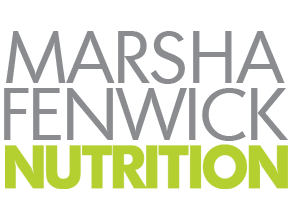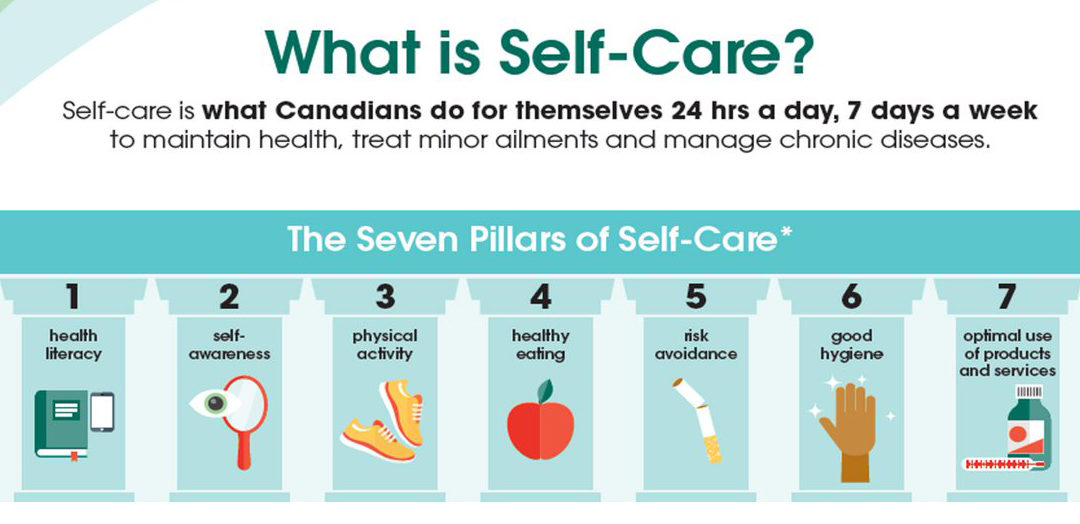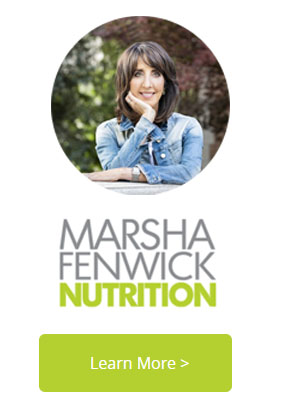International Self-Care Day
July 24th (7/24) is International Self-Care Day, a worldwide campaign held annually as a reminder that the benefits of self-care are experienced 24 hours a day, seven days a week. It highlights the importance of self-care and encourages everyone to practice responsible self-care.
“Self-care is a lifelong habit and culture. It is the practice of individuals looking after their own health based on the knowledge and information available to them. It is a decision-making process that empowers individuals to look after their own health efficiently and conveniently, in collaboration with health and social care professionals as needed. ” ~ Global Self-Care Federation
There are 7 Pillars of Self-Care:
- Health Literacy
- Self-Awareness
- Physical Activity
- Healthy Eating
- Risk Avoidance
- Good Hygiene
- Optimal Use of Self-Care Products and Services
Let’s Focus on Pillar 4: Healthy Eating
An unhealthy diet is a major risk factor for chronic diseases and poor health. The prevalence of over eating, and consumption of nutrient-poor, calorie dense foods has led to a global epidemic of obesity.
Pillar 4 focuses on the role that diet plays in self-care, maintaining health and reducing the risk of diet-related non-communicable disease.
Healthy eating is important because…
A healthy diet has been proven to have preventative benefits, reducing the risk of many non-communicable diseases. Data shows that improving diet and exercise and quitting tobacco use could prevent up to 80% of non-communicable disease.
Evidence shows that people can remain healthy into their seventh, eighth and ninth decades, when a range of health-promoting behaviours, including healthy diets, are followed. 1
Dietary changes are also used in the treatment of established illnesses, in a similar way to physical activity.
As with exercise, it is never too late for an individual to improve their diet and work on eating healthily; the benefits gained from improved diet are both immediately apparent and life-long. 2
Resources for Healthy Eating:
- Heart & Stroke Foundation: How to curb emotional eating
- Make healthy meals with the Eat Well Plate – food-guide.canada.ca
- Healthy Eating
- Canada’s Food Guide – Canada.ca
- Canadian Liver Foundation – Check Your Engine
- Heart & Stroke Foundation – Get Healthy
- Health Canada
- HealthLinkBC – Healthy Eating
- Nutrition Policy Reports
- Healthy Eating
- Understanding Food Labels
- Health Canada: Food and Nutrition
- Health Canada: Nutrition and Healthy Eating
- Heart & Stroke Foundation: Get Healthy/Healthy Eating
Be sure to participate in the conversation July 24th on Twitter & Instagram using the hashtag #iselfcare.
Source:
1 “Global Strategy on Diet, Physical Activity” WHO, Retrieved 09 July 2020. <https://www.who.int/dietphysicalactivity/strategy/eb11344/strategy_english_web.pdf>.
2 “Pillar 4 Healthy Eating” International Self-Care Foundation, Retrieved 09 July 2020. <https://isfglobal.org/practise-self-care/pillar-4-healthy-eating/>.
Marsha Fenwick, C.N.P. R.R.T.
Marsha is not your typical nutritionist. She began her career 20 years ago as a Registered Respiratory Therapist. Later, she earned her certifications as a Registered Nutritional Consultant Practitioner, Certified Nutritional Practitioner, and Registered Orthomolecular Health Practitioner. Marsha is also a Certified Cancer Coach. Her clinical practice specializes in: sustainable healthy weight loss, digestive health, women's hormones, diabetes, heart health, and cancer prevention and recovery. For more information and to book a FREE 15 minute consultation go to www.marshafenwicknutrition.com







